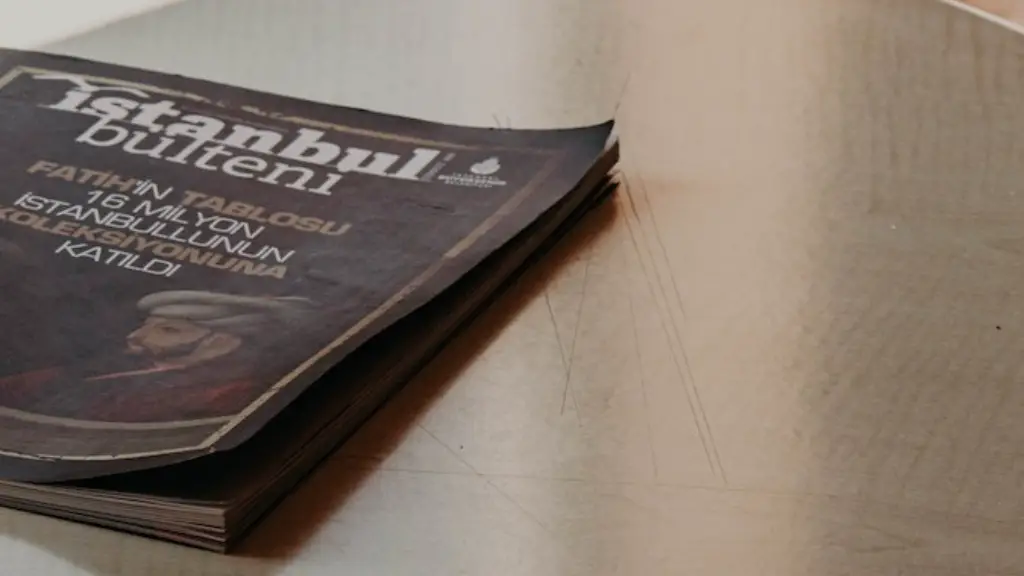Identifying Poetry Magazines
Finding the right poetry magazine can be a challenge. There are hundreds of publications out there and it can be hard to know which one best suits your work. With most magazines, you’ll want to review a few issues prior to submitting your work. Many magazines also have a mission statement or submission guidelines that you can use as a reference for what type of poetry they’re looking for. It is also important to research any fees associated with submitting your work. Some magazines accept submissions for free, while others may require a submission fee.
You can also check with other writers and friends to see which magazines they’ve had success with in the past. If you’re looking for specific genres, some online search tools and directories can be helpful in locating magazines that publish those types of works. Sites like Submittable and The New Pages are great resources for finding magazines by specific genres as well.
Writing Your Poem
The poem you write is just as important as the magazine you submit to. Many magazines require that you submit your work as an original, unpublished piece. Before submitting, you should make sure that you copyedit and proofread your work as many times as possible. Get feedback from other writers to get a better understanding of what works and what doesn’t. Consider printing out your poem and reading it out loud to yourself – it can be helpful to hear how your poem sounds as a whole.
Composing a Cover Letter
Writing a good cover letter is just as important as writing a good poem. A publisher or editor wants to know who you are and how to contact you, so it’s important to include all the necessary information. Start with a brief introduction and then move into the body of the letter. Make sure to include your contact info, as well as a brief biography or summation of your writing experience.
You should also make sure to explain your work to the editor. Explain why you think your poem would be a good fit for their magazine. Did you have a particular idea or message in mind when writing it? Did someone else recommend the magazine to you? These are all important details that will pique the interest of the editor.
Polishing the Final Draft
Once you’ve taken the time to write a great poem and compose a cover letter, it’s time to make sure that everything looks perfect and is ready to submit. Make sure that all of the information on your cover letter is correct and complete. Double-check the formatting of your poem to make sure it is consistent throughout. If the magazine has any limits on word count, make sure that you don’t exceed them.
Submitting the Poem
It’s finally time to submit your poem. If the magazine you’re submitting to has an online submission process, all you need to do is fill out the necessary forms and upload your poem. If you’re submitting via mail, make sure to attach a physical copy of your poem along with your cover letter and any other documents required.
Waiting for a Response
Waiting for a response from a magazine can be one of the hardest parts of submitting work. Most magazines don’t provide a timeline for when you can expect to hear from them, so all you can do is be patient. It’s also important to remember to follow up with the magazine if you don’t hear back after a certain amount of time. This can help ensure that your submission was received and is being considered.
Being Accepted and Published
If your poem is accepted, it’s time to celebrate! Take the time to acknowledge your hard work and all the steps you went through to get to this moment. This can also give you time to reflect on what went well and what you can do differently for future submissions. Many magazines will also provide compensation for your work, so make sure to read and understand any contracts before you sign anything.
Looking for Other Opportunities
Once you’ve had success with one magazine, it’s time to start looking for other opportunities. Take some time to explore other magazines and submit to them as well. You can also look into entering open calls or competitions as well as sending your poems to literary agents or publishers. Each of these options can help your work gain more exposure and bring you closer to turning your dream of being a published poet into a reality.
Making the Most of Success
Once you’ve been successful with a publication, it’s important to make the most of it. Share your poem and spread the word about your success. Talk with the magazine and establish yourself as a regular contributor. Use social media to spread the word about your work and your successes. This can help to enhance your career as a poet and exponentially increase the reach of your work.
Marketing Yourself as a Poet
Marketing yourself as a poet doesn’t have to be a chore. A simple website can go a long way in helping to showcase your work and make yourself available for speaking engagements or other opportunities. Social media can also be used to promote your work, but make sure to keep it professional. You can also attend events or take part in workshops to network and meet other writers.
Building a Community
Networking with other writers can help bring your work to the forefront. Joining writing associations or networking groups can also be beneficial. By connecting with other poets, you can gain knowledge and insight while sharing your own voice as well. This can also be an opportunity to develop relationships and potentially collaborate on projects.


